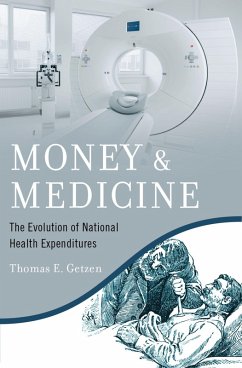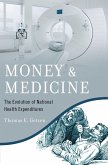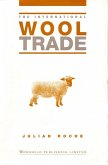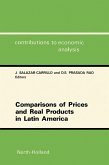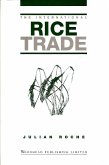A unique historical review that traces health spending from ancient times to the present and forecasts 21st century trends. There are many histories of medicine, yet none that assess the dynamics of expenditures over decades and centuries. Economists have not yet addressed the magnitude of the transformation that occurred during the twentieth century as payments shifted from solo physician practices to health systems, nor the legacy effects of social practices accumulated over millennia that will shape health spending in the twenty-first. In
Money and Medicine, Thomas E. Getzen provides a unified narrative of medical spending from ancient Egypt and Babylonia to the present day. Drawing on a wealth of historical reports, data, and documents, Getzen concentrates on a single ratio-the share of income devoted to medical care-to frame the evolutionary path of medicine, revealing an S-shaped growth curve that rose rapidly after 1900 as science made therapies more effective and more expensive, inflected as national health systems coalesced and rates of expansion peaked in the 1960s, then decelerated after 1975. International trends in forty-three countries are graphically illustrated with analysis supporting a parsimonious financial model. Significant lags are seen between medical innovation or macroeconomic shocks and the corresponding changes in national health expenditures. Getzen explains inertial responses to the 2008 financial crisis and Covid-19 recession, provides a method for projecting trends over the next fifty years, and suggests why spending is so much higher in the United States than other countries. As rising costs and unequal distribution of medical care have created a sense of crisis in many countries,
Money and Medicine shows that we must look beyond the last few years to craft sensible solutions.
Dieser Download kann aus rechtlichen Gründen nur mit Rechnungsadresse in A, B, BG, CY, CZ, D, DK, EW, E, FIN, F, GR, HR, H, IRL, I, LT, L, LR, M, NL, PL, P, R, S, SLO, SK ausgeliefert werden.

